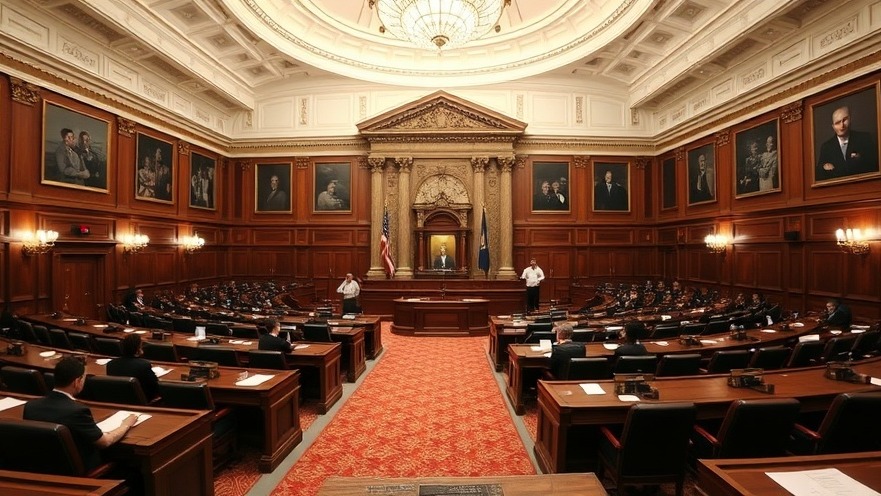
Texas Housing Crisis: An Ongoing Challenge for Affordable Living
In recent years, Texas has gained notoriety for its soaring housing costs, especially in urban centers like Houston, Dallas, and Austin. The high prices reflect a pressing need for affordable housing options in a state that continues to grow. Legislators have attempted various innovative proposals aimed at easing this burden, yet recent developments signal a lengthy and complicated road ahead for families seeking affordable homes.
The Bill That Could Have Made a Difference
The proposal to allow smaller homes on smaller lots, part of Senate Bill 15, was seen as an opportunity to tackle rising home prices head-on. Supported by Lt. Gov. Dan Patrick, the bill aimed to give homebuilders the flexibility they needed to build smaller, more affordable residences. This legislative effort had the potential to address a significant aspect of Texas's housing crisis by reducing the land requirement for single-family homes, thus lowering construction costs.
Community Concerns: A Divided Perspective
However, the bill was met with strong opposition. Neighborhood activists and local city officials raised concerns about the proposed changes infringing on local zoning laws, which dictate what can be built and where. Rep. Ramon Romero Jr., a Democrat from Fort Worth, highlighted that he was uncomfortable with state intervention in local housing regulations, arguing that smaller homes could lead to potential issues, such as increased traffic and runoff.
Supporting Romero's position, various community members emphasized that simply allowing smaller homes doesn't guarantee lower prices. Recent data from Austin has shown that even with the option for smaller lots, homes can still command high prices if demand continues to outstrip supply. Romero's quote reflects a common sentiment: “It’s already been proven that just because you have smaller (homes) does not immediately equate to more affordable (homes).”
Lessons from Houston's Urban Planning
Historically, cities like Houston have demonstrated how policy can influence housing prices. Starting in the late '90s, Houston loosened land requirements for homes, leading to an influx of smaller, more affordable housing options. This housing boom helped stabilize prices compared to those in cities with stricter rules, like Los Angeles. Still, advocates for smaller homes argue that the current developments suggest a lack of political willpower to adopt similar strategies across Texas.
A Path Forward: What Lies Ahead?
Despite the setback with Senate Bill 15, supporters, including Rep. Gary Gates, are actively seeking ways to resuscitate the proposal. Innovative strategies such as attaching the bill to other legislation could pave the way for renewed discussions. As the legislative session approaches its end on June 2, the future of affordable housing in Texas hangs in the balance, raising questions about the broader implications for families and the housing market.
The Bigger Picture
This situation reveals broader social implications surrounding housing affordability in Texas. With more people migrating to urban areas for job opportunities, the demand for housing continues to grow, making it increasingly urgent to find solutions. The stalled bill illustrates the complexities of local governance versus state mandates, and how community voices often grapple with policy-making processes.
Take Action: Advocate for Affordable Housing in Texas
As Texas residents navigate this challenging landscape, it is vital to stay informed and involved. Advocating for housing policies that prioritize affordability and community input can help shape a better housing future. Understanding the motivations behind legislative changes and their outcomes is essential for citizens concerned with the state’s housing policies.
 Add Element
Add Element  Add Row
Add Row 



Write A Comment